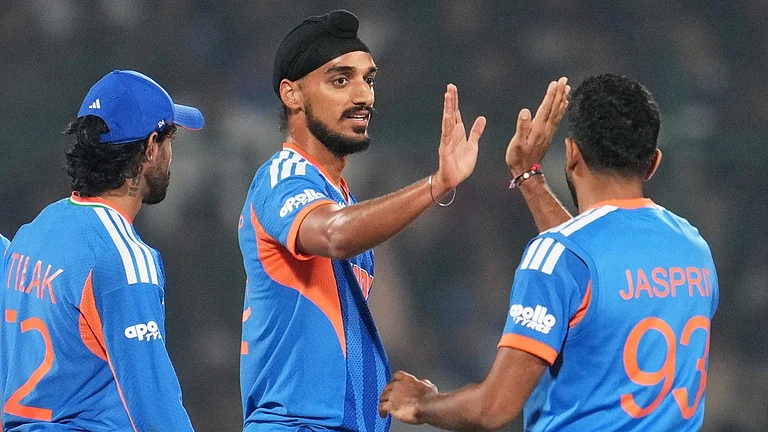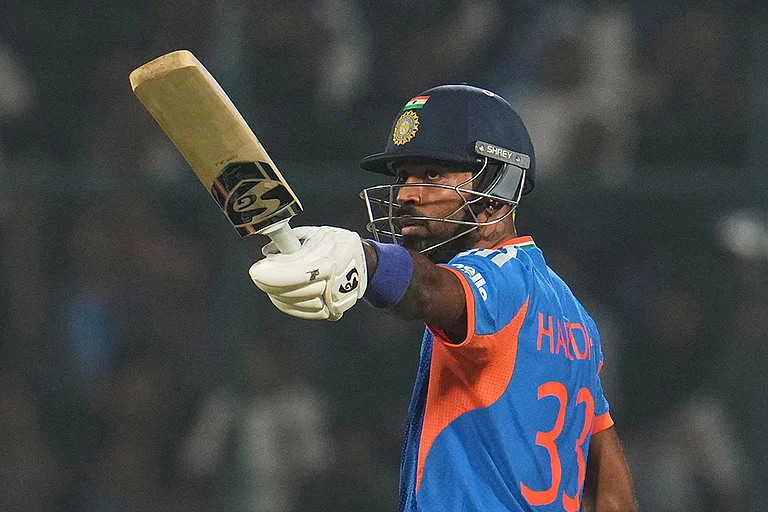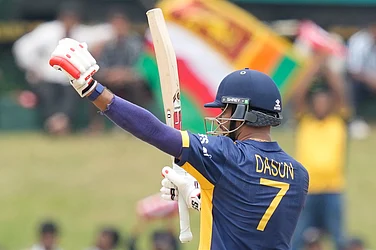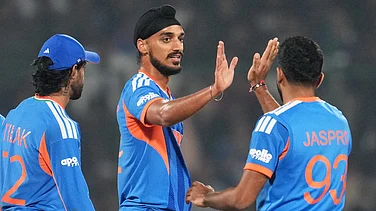The word ‘gremlin’ has been around for a long time. But it was after the 1980s comedy-horror movie by that name that it became known more. The film depicted gremlins as furry little creatures, cute on the outside but devilish by nature. One of them arrives in town as a pet. The creatures multiply and go on to unleash mayhem in the region.
Tennis great Martina Navratilova was one of the many sports legends who described an athlete’s anxious thoughts as ‘gremlins’. It starts with a germ of doubt – what if I don’t perform. Then it grows into a giant ball of fear that can defeat you before your opponent does.
Gremlins, at least of the movie kind, are fiction. Anxiety is not.
“Many of my clients are sportspeople, and I tell them, anxiety is going to be there. It is a part of a sportsperson’s life,” says Sonal Shah, a nutritionist and psychologist in Ahmedabad. “A little bit of anxiety is good, as it helps you focus. More attention is needed when the anxiety starts causing physiological changes in a person.”
One of the dictionary meanings of politics is “the principles relating to or inherent in a sphere or activity, especially when concerned with power and status.”
By that definition, anxiety is inherent to sports.
It shows up in different ways. Sleep before a match can be elusive, to give one example. It happened with Sachin Tendulkar.
“I felt the anxiety for 10-12 years, had many sleepless nights before a game,” he revealed in 2021. “Later on I started accepting that it was part of my preparation. Then I made peace with times I was not able to sleep in the night. I would start doing something to keep my mind comfortable."
Acceptance was key here, Tendulkar emphasized.
The troubling bit is anxiety can strike even when a player is doing well. That is why closing a match is often difficult. Roger Federer was a single point away from winning the 2019 Wimbledon final against Novak Djokovic and cementing his legacy as the greatest of all time. That too on his serve. But Federer, the magician of tennis, its ultimate artist, could not get it done. He had a snake and ladders like drop. Djokovic, the tortoise for most parts of the match, ended up winning.
Federer snatched defeat from the jaws of victory, to flip a cliché. It wasn’t all anxiety. Djokovic played well on one of those points. But some of it, it can safely be presumed, was anxiety, when nerves result in tight arms and jelly like legs, and routine shots or plays become difficult to execute.
To prepare for such moments, athletes use different approaches. One of them is to train so well, that they take to the match the positive emotions of having done everything in their hands. And hope that when the negative feelings come, the positive thoughts would win out. That is what Neeraj Chopra, India’s greatest Olympian, seems to tell Outlook from Loughborough, UK, where he is training for the 2023 season.
“There are times when you feel physical and mental fatigue during training. That’s where we push ourselves,” Chopra says on a video call in response to a question on anxiety. “You remind yourself of your targets. It’s a different feeling when, even though you are tired, you still complete your goals and training. I think that helps an athlete [get stronger mentally and guard themselves against anxiety].”
Pressure of public expectation can also lead to anxiety for a player. But Chopra says that an athlete first and foremost feels the expectations he has from himself.
“Dono pressure saath me hote hai,” he says. (Both types of pressure co-exist). Chopra is aware of external noise in the lead-up to a competition. But once the gun goes off, in a manner of speaking, he is able to shut that out and focus on his job.
“When the competition starts, I tell myself that this is the day I’ve trained for. The result of this mindset has been quite good till now,” he says. “Sometimes we perform, sometimes we don’t. Ups and downs keep happening in sport. Gradually, people are also realizing that it is not possible to keep winning.”
The Obsession With Winning, Or With Not Losing
With an Olympic gold medal to his name and his place in history certain, Chopra is now in a position to not let defeat bother him much. This is not to say he can be complacent. But deep down he knows that he has achieved his major goals.
But a majority haven’t. The arena is filled with scores of aspiring athletes who have not proven themselves at state or National level, let alone at the Olympics. They are consumed by the desire to win, and are haunted by the fear of defeat. Former tennis player Mardy Fish, whose battle with nearly fatal anxiety was captured in the 2021 Netflix film ‘Untold: Breaking Point’, put it aptly when he said, “I love the feeling of leaving a city without losing.” That is the feeing every sportsman of varying abilities – from club level to pro – craves for.
Sonal Shah observes a common theme in most of the sportspeople she counsels. They are great in practice, but unable to translate that into match performance. This drives them to despair.
“Tournament play is different, just like an examination is different from home study,” Shah tells Outlook. “When my clients enter tournaments, they have a fear of whether they will win or not. The fear is greater if they are playing against a challenging opponent. Then there is the crowd factor, expectations of their coach and parents. Their anxiety level goes very high due to all these thoughts.”
The players are then put through a program that can include diet, journaling, yoga and SMART goals (Specific, Measurable, Achievable, Relevant, Time-Bound). Small steps such as listening to music before a match, or closing eyes for just a second or two during tense phases, also help. Self-talk is recommended too. Nothing hyperbolic like “I’m the best”, but something authentic to the individual, that would enable them to do their best.
Diet can play a huge role. Shah says that the turnaround for one of her clients started with weight loss. “This particular player had relocated to a bigger city and was struggling to cope with the new coach and surroundings,” she says. “The player also felt they were slightly overweight. The rest of the issues were not entirely in my hands, but the weight was, so that is what we addressed first. The player started feeling better about themselves right away.”
Sometimes, anxiety is triggered by grief. Ben Stokes struggled to come to terms with the death of his father and took treatment for his condition. Stokes’ journey, too, has been captured in a documentary (‘Phoenix from the Ashes’).
“I still speak to the doc, [though] not as regularly, and I’m still taking medication every day. It’s an ongoing process," the star England allrounder says in the documentary about his treatment.
In the case of gymnastics champion Simone Biles, it was an accumulation of pressure, past traumas and exhaustion that caused her to withdraw from some of her events at the Tokyo Olympics. One of the victims of sexual abuse by disgraced US gymnastics coach Larry Nassar, Biles’ mental load in Tokyo was so crushing that she experienced the ‘twisties’, where a gymnast feels disoriented mid-air and is at risk of a dangerous fall. The winner of four golds at the 2016 Rio Olympics was fortunate to not break her neck or spine and wisely decided to pull out of some of her competitions. To her credit, Biles returned to participate in the balance beam final, where she won a bronze.
There are times when repeated questions about one subject or a milestone from the media can be a stressor for a player. Neeraj Chopra may be an Olympic gold medalist, but rare is a media interaction with him where he is not asked about breaching the 90m barrier.
Chopra came very close last year, when he hurled 89.94 metres.in Stockholm.
It must be annoying to be asked about 90m all the time, but mostly he laughs it off.
“How short have I been of 90m? Just 6 cm,” he grins. “But it is like a magical mark in our sport, and so people keep talking about it. As do we, to be honest. It is a badge of honour for javelin throwers. ‘90m maar rakhe hai isne’ (he has thrown 90m), we say of throwers who have done it. It doesn’t bother me if I’m asked about it repeatedly. I know I’m close. Maybe god has chosen a place for me for it to happen. When it happens, it happens.”
This kind of attitude is a fine way of making sure that the javelin flies far, and anxiety stays further.


























